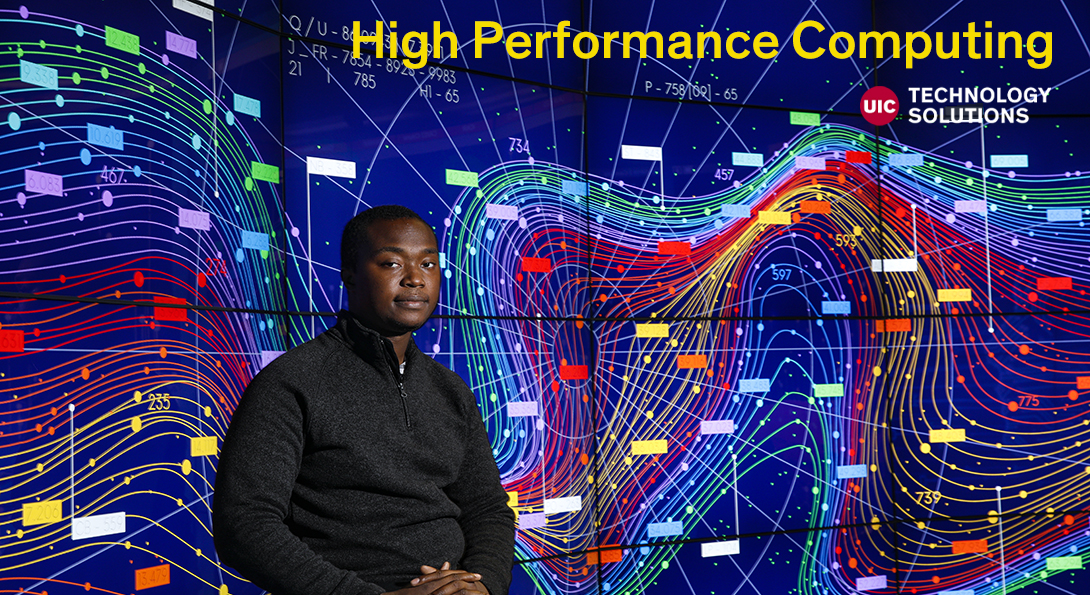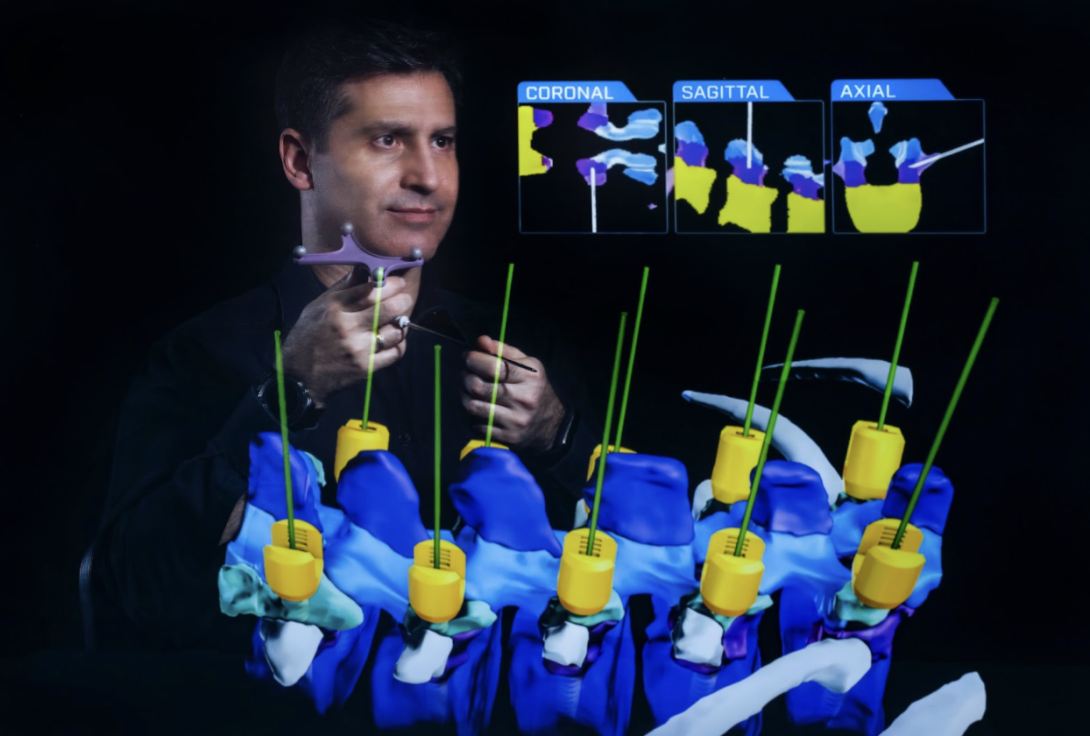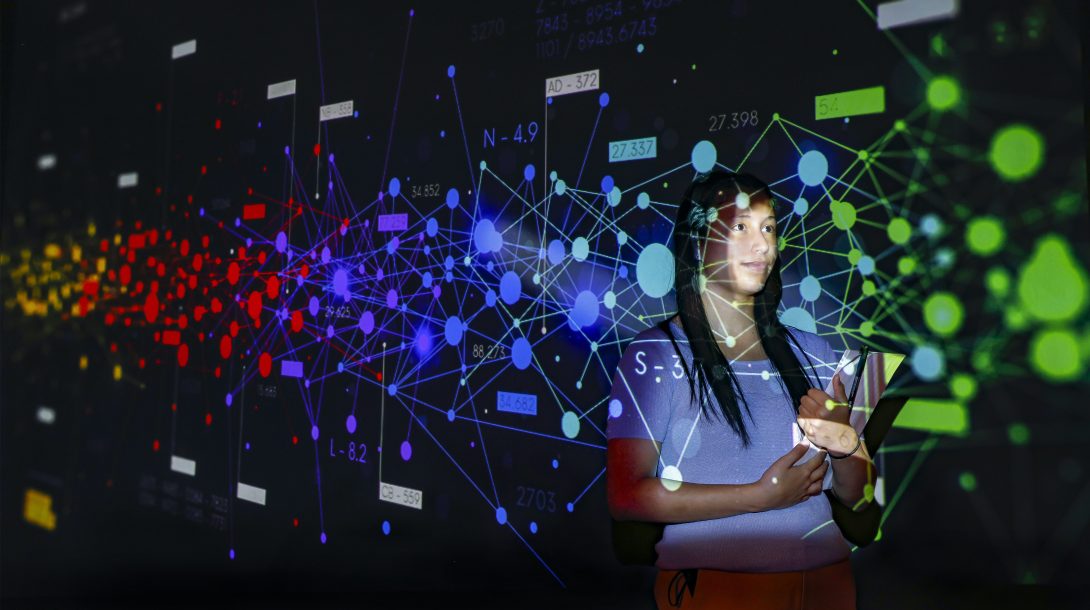Leveraging High Performance Computing at UIC

What is High Performance Computing
High Performance Computing (HPC) sounds complex, but what is it exactly, and how is UIC leveraging its HPC resources to advance research? Advanced Cyberinfrastructure for Education and Research (ACER) Assistant Director of Research Facilitation, Leonard Apanasevich, discusses HPC at UIC.
HPC, or supercomputing, refers to the practice of aggregating computing power in a way that delivers much higher performance than one could get out of using an ordinary desktop computer or workstation.
Quote 1
Some 20 years ago, we used to think of supercomputers as a single, super powerful brain that did all these complex computations super quickly, but it has since evolved into the leveraging of multiple computers working in tandem to perform these calculations.
| Assistant Director of Research Facilitation
continued
Computer clock speeds have not increased much in the last decade or so, mainly due to the physical limitation of how densely we can pack transistors on a chip without it melting down, Apanasevich explains. “A modern supercomputer is not a super fast processor. The CPUs on these systems have roughly the same processing power as the CPUs found on your laptops. The real power comes from having tens, hundreds, or even thousands of computers working together to perform your calculations,” he says.
HPC is being used by researchers to solve larger and more complex problems in a wide variety of fields, helping them conduct analysis faster than on a traditional machine.
quote 2
If your analysis takes too long, or you have a lot of data, you need more or faster computational power, and that’s where HPC works for you.
| Assistant Director of Research Facilitation
A few examples of disciplines that use HPC include:

Business & Finance
One place financial institutions are using HPC is to identify and prevent credit card fraud. Firms are using HPC systems coupled with advanced machine learning algorithms to process and study millions of transactions every second, looking for evidence of fraud.
Climate & Weather Science
HPC systems are used to help meteorologists and other scientists put satellite imagery and mountains of data to work to improve the accuracy of forecasts, simulate dangerous weather patterns and create better early warning systems for hurricanes, tsunamis, tornadoes and other catastrophic weather events.
Digital Humanities
Humanities scholars often deal with large sets of unstructured data. This might take the form of historical newspapers, books, election data, archeological fragments, audio or video contents, or a host of others. HPC offers these scholars the tools and capability to sort through, mine, and better understand and visualize this data.
examples 2

Health Sciences & Health Care
HPC plays many roles in advancing medical research. In one example, HPC systems were used to help develop a noninvasive robotic arm controlled by the brain—a potentially life-changing breakthrough for people living with paralyzed limbs! HPC is also helping to accelerate the discovery of new drug treatments by providing much quicker and efficient analysis of all types of medical and biological data.
Scientific Visualization
Researchers and scientists are creating innovative techniques for immersive scientific visualization with the help of HPC. They also combine the tools techniques of mathematical analysis, parallel and distributed computing, and visualization to improve the field of measurement science, including the extension of traditional measurement science to the virtual world.
quote 3
In the past, it was thought that people used HPC systems in hard sciences such as physics, chemistry, and biology, but these days it’s being used in the social sciences, humanities, healthcare… it’s being used in some capacity almost everywhere.
| Assistant Director of Research Facilitation
About ACER
UIC Technology Solutions is the provider of campus-wide computing, storage, networking, communications and instructional technology services at UIC. Technology Solutions instituted the Advanced Cyberinfrastructure for Education and Research (ACER) to provide researchers and their collaborators around the globe with a broad-array of computational resources and data-related services to meet any and all of their technical needs.
These services include, but are not limited to providing access to:
- high-performance computing clusters
- big data analytics clusters
- high-performance networking
- secure research environments
- tutorials and workshops
- one-on-one consultation services
From building advanced computing architectures and systems to setting up platforms to securely receive and analyze data, to software-defined networking projects, ACER is committed to furthering UIC’s research ambitions.
Are you a researcher? Learn more about how ACER can help advance your work at acer.uic.edu.
Forward Initiative
The Forward Initiative consists of strategic plans and technology roadmaps to upgrade, expand, optimize, and/or modernize three areas of campus infrastructure and technology: Data Network and Voice Systems, Data Centers and Research Cyberinfrastructure.
As part of the Forward Initiative, ACER has received funding to expand UIC’s High Performance Computing capabilities, which includes acquiring new storage and computing infrastructure, and developing an Exploratory Credit Program that will allow researchers to access HPC services at no cost to them.
Learn more about the Forward Initiative and view a roadmap and goals for research cyberinfrastructure at UIC.